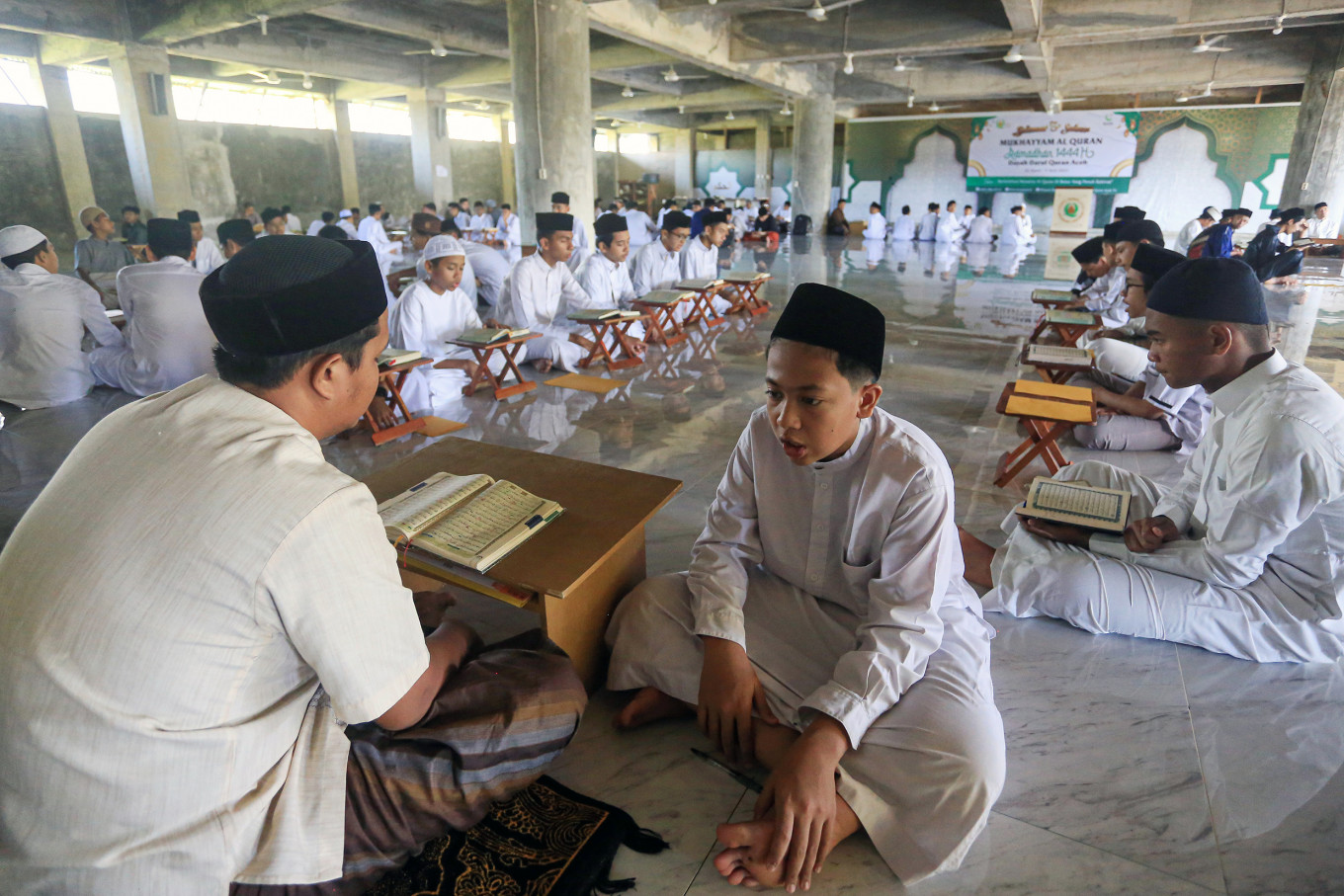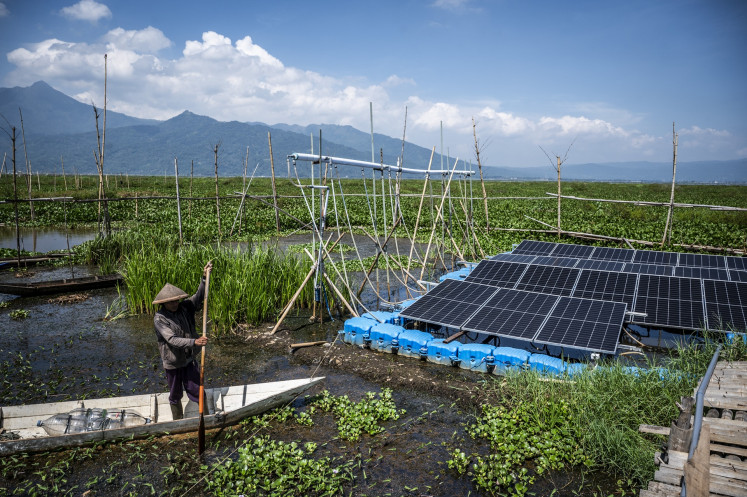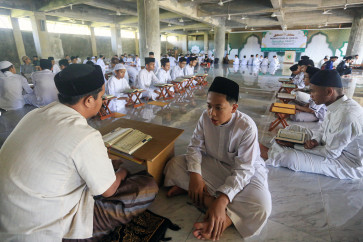Popular Reads
Top Results
Can't find what you're looking for?
View all search resultsPopular Reads
Top Results
Can't find what you're looking for?
View all search resultsRediscovering ‘pesantren’ subculture amid public scrutiny
Most pesantren (Islamic boarding schools) are evolving organically, seeking to balance their heritage with the demands of contemporary education and regulation.
Change text size
Gift Premium Articles
to Anyone
 Dayah Darul Quran Aceh 'pesantren' (Islamic boarding school) students attend a Quran recital at Gampong Tumbo Baro in Kuta Malaka, Aceh, on March 29, 2023. More than 220 students took part in the Quran Camping program, where they were trained to memorize portions of the holy text during Ramadan. (Antara/Khalis Surry)
Dayah Darul Quran Aceh 'pesantren' (Islamic boarding school) students attend a Quran recital at Gampong Tumbo Baro in Kuta Malaka, Aceh, on March 29, 2023. More than 220 students took part in the Quran Camping program, where they were trained to memorize portions of the holy text during Ramadan. (Antara/Khalis Surry)
I
n recent weeks, Indonesia’s pesantren (Islamic boarding schools), have once again come under public scrutiny. The collapse of a building at Al-Khoziny Islamic boarding school in Sidoarjo, East Java, claimed lives and caused deep sorrow.
But the tragedy was quickly followed by a wave of public criticism. A television show on Trans7 amplified this scrutiny by portraying core Islamic boarding schools traditions, such as kissing the kyai’s (teacher) hand, tabarukan (seeking blessings), and students’ deep reverence toward their teacher, as outdated, even feudal. This depiction angered many within the Islamic boarding schools community.
The uproar reflects a growing tension between two distinct moral worlds. Urban Indonesians, shaped by bureaucratic rationality and the pursuit of efficiency, often evaluate all institutions through the logic of modern management and measurable results. In contrast, Islamic boarding schools operate within a different moral economy, one grounded in spirituality, voluntary service and communal ethics. For outsiders, the discipline and deference of santri (Islamic boarding schools students) may seem submissive; for insiders, they are forms of devotion and self-cultivation.
Sociologically, these two worlds embody what Pierre Bourdieu called different habitus (distinct systems of values and dispositions that shape how people perceive and act in the world). The Islamic boarding schools' habitus emphasizes humility, endurance, and ikhlas (sincerity), while modern urban life privileges autonomy, speed and achievement. When these worlds meet without empathy, misunderstanding is inevitable. What one side sees as outdated obedience, the other views as moral education.
The late Abdurrahman “Gus Dur” Wahid famously described Islamic boarding schools as a subculture, a distinctive moral and social universe within Indonesian Islam. For Gus Dur, Islamic boarding schools were not relics of the past but vibrant communities that embody zuhd (modesty), intellectual discipline and ta’dzim lil ‘alim (respect for teachers). They stand as moral counterbalances to an increasingly materialistic society.
French sociologist Emile Durkheim might have described life in Islamic boarding schools as an example of mechanical solidarity, a form of cohesion based on shared beliefs and moral unity. When santri sweep dormitory floors, serve meals for their teachers, or live simply on minimal resources, these are not acts of subservience but exercises in communal discipline. Such daily rituals train students to internalize patience, humility, and a sense of shared destiny.
In contrast, to those steeped in modern organic solidarity, where relationships are contractual, specialized and functional, Islamic boarding schools traditions can appear inefficient or irrational. The clash of moral grammars often leads to the mistaken belief that Islamic boarding schools reject progress or transparency. In truth, most Islamic boarding schools are evolving organically, seeking to balance their heritage with the demands of contemporary education and regulation.


















